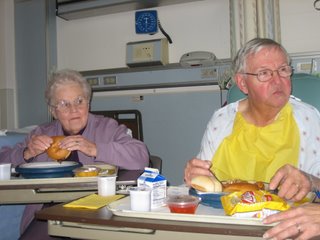Great Day Today

 www.globallearncomm.blogspot.com.
www.globallearncomm.blogspot.com. 
"Blogger" n. Someone with nothing to say writing for someone with nothing to do. This is the blog of Eric Swanson containing the developing thoughts and reflections on the externally focused church, the kingdom of God and what I see God doing in the world, in my life and the life of my family and friends. I also occassionally throw in a little commentary on good restaurants I like along with a few pictures.

 www.globallearncomm.blogspot.com.
www.globallearncomm.blogspot.com. 

 Today is the first day of the last gathering of our Global Learning Community here in Estes Park, Colorado. Leaders from 14 cities from around the world convened last night at Lost Antler Ranch and this morning we started by having leaders answer four questions: What's their greatest success? What is working? What is stuck? and Greatest Success? It was pretty amazing the impact these folks are making. For a fuller transcript to to www.globallearncomm.blogspot.com.
Today is the first day of the last gathering of our Global Learning Community here in Estes Park, Colorado. Leaders from 14 cities from around the world convened last night at Lost Antler Ranch and this morning we started by having leaders answer four questions: What's their greatest success? What is working? What is stuck? and Greatest Success? It was pretty amazing the impact these folks are making. For a fuller transcript to to www.globallearncomm.blogspot.com.

 years, Mom can finish his sentences for him and he uses his non-verbals very well. It is interesting the the automatic words and sentences Dad does say are things he's said hundreds of thousands of times in his lifetime--"Thanks so much," "Pass the gravy," (I brought a bucket of KFC home last night) and "I love you."I can't tell you how good his attitude and outlook is. He smiles, gets up frequently to see what is going on and apart from his inability to find and form the words he wants...which hopefully will come in time, is doing remarkably well considering he had surgery two weeks ago today.
years, Mom can finish his sentences for him and he uses his non-verbals very well. It is interesting the the automatic words and sentences Dad does say are things he's said hundreds of thousands of times in his lifetime--"Thanks so much," "Pass the gravy," (I brought a bucket of KFC home last night) and "I love you."I can't tell you how good his attitude and outlook is. He smiles, gets up frequently to see what is going on and apart from his inability to find and form the words he wants...which hopefully will come in time, is doing remarkably well considering he had surgery two weeks ago today. Since I've been here the speech therapist, physical therapist and occupational therapist have been here working with Dad and are all encouraged by what he can do. I don't think any of them want to convey any false hope of a full recovery but Dad is making progress daily and he even seemed to improve from the time I arrived and last night when after trying to get out a sentence, said, "Oh, why can't I talk?" to which we all had a good laugh! I think it will be "cinch by the inch" as Dad so often has said.
Since I've been here the speech therapist, physical therapist and occupational therapist have been here working with Dad and are all encouraged by what he can do. I don't think any of them want to convey any false hope of a full recovery but Dad is making progress daily and he even seemed to improve from the time I arrived and last night when after trying to get out a sentence, said, "Oh, why can't I talk?" to which we all had a good laugh! I think it will be "cinch by the inch" as Dad so often has said.Recently Rick Warren was on Tim Russert's Meet the Press (December 24, 2006). During the program Tim asked Rick about the giant problems of the world. Here is Rick's answer...which I thought was very instructive:
Recently Rick Warren was on Tim Russert's Meet the Press (December 24, 2006). During the program Tim asked Rick about the giant problems of the world. Here is Rick's answer...which I thought was very instructive:
We begin the new year with a mix of emotion. My brother Bruce's daughter, Brenda, her husband Christian, son Jaiden (one day older than our grandson, Gentry David) and Christian's brother Sam hhave been here since the 23rd. My sister Debbie and her family have been staying with us since the 29th. And what could be better than a new granddaughter--baby Jenda?
 But Dad is still in the hospital after bypass surgery on a coratid artery three days ago. He is clear of mind but is having trouble articulating his thoughts and expressing himself. Our prayers are for a full recovery. Please pray for Boyd and for my mom, Vi as she has been with him 24/7 since the surgery.
But Dad is still in the hospital after bypass surgery on a coratid artery three days ago. He is clear of mind but is having trouble articulating his thoughts and expressing himself. Our prayers are for a full recovery. Please pray for Boyd and for my mom, Vi as she has been with him 24/7 since the surgery.